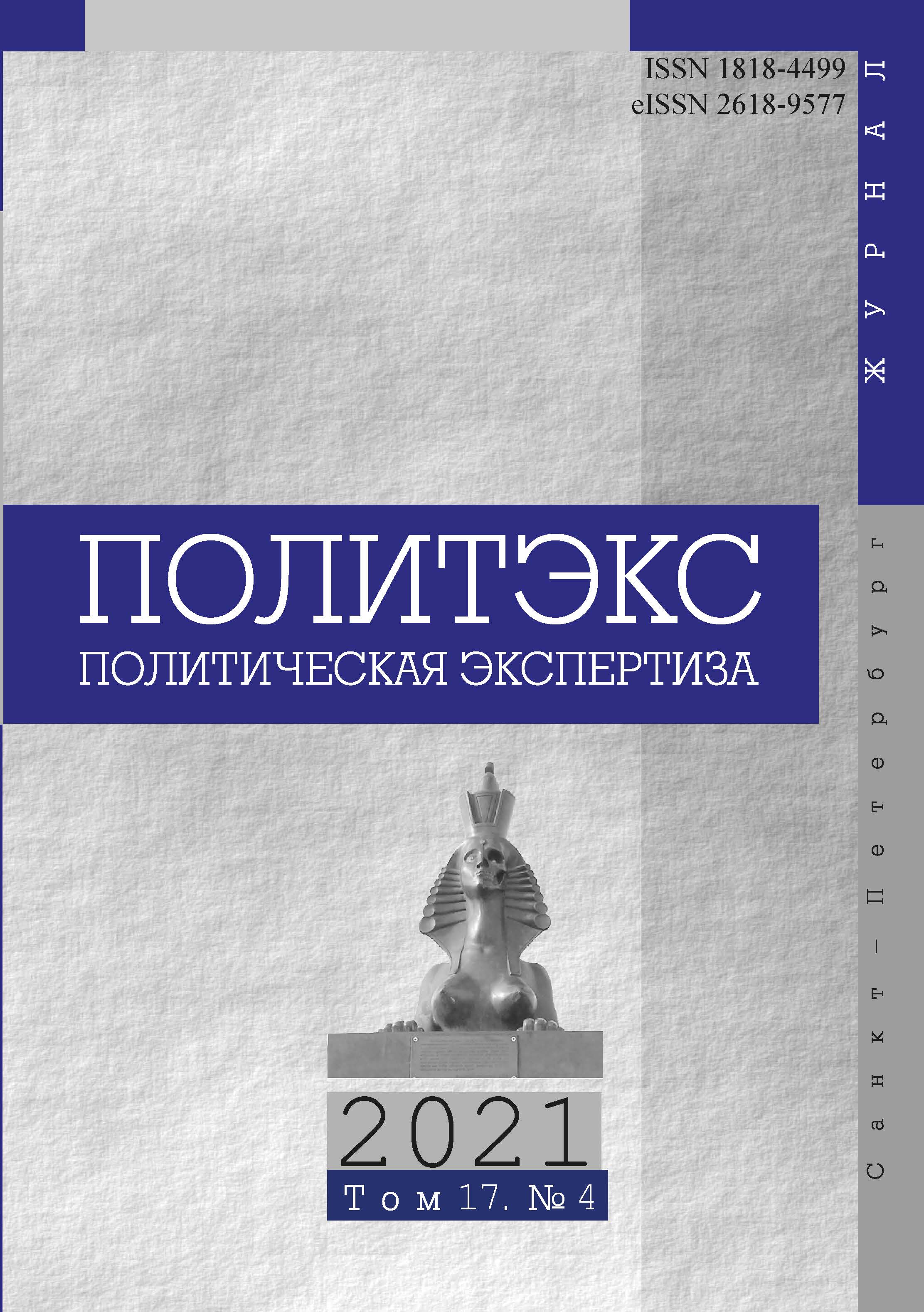DIGITAL TENSION: A COMPARISON BETWEEN DEMOCRACIES AND AUTHORITARIAN REGIMES
DOI:
https://doi.org/10.21638/spbu23.2021.401Аннотация
There is no looking back from the ever-increasing digitalization of political processes and administration. This is a global phenomenon, but it has different impacts in democratic and authoritarian regimes. This theoretical paper seeks to explain this difference using the concept of digital tension. Digital tension refers to incompatibility among the different components of digital technology, which gives rise to incongruence and even conflict between different outcomes of use of digital technology to political processes. Digital technology promotes openness, transparency, and decentralized use, but it also facilitates centralization of monitoring and control. The outcomes of openness, decentralization, and transparency in actual practice go against the centralizing tendencies inherent in the same technology. In political discourse we say that digital technology empowers ordinary citizens, but we can also assert that it equally empowers rulers in a political regime. However, the interests of the rulers and the ruled are not the same even in democratic regimes. Since governing authorities are more resourceful, they are likely to use digital technology to enhance their power. This tendency is found in both democratic and authoritarian regimes. In democratic regimes, the ruling regime may use digital technology not only to centralized monitoring and control, but also for greater surveillance of opponents and critics. However, digital tension is well managed in authoritarian regimes, and hence the empowerment of rulers through digital technology is more pronounced. Thus, digital technology for centralized monitoring, supervision, and control is a boon for authoritarian regimes. This paper is divided onto four parts: Part one deals with theoretical issues related to digital technology and digital tension, Part two analyzes the role of digital technology in democratic regimes, Part three explains the use of this technology in authoritarian regimes, and Part four compares democratic and authoritarian regimes with respect to the use of digital technology and lists conclusions of this study.
Ключевые слова:
Digital Tensions, Democratic Regimes, Authoritarian Regimes, Centralization of Control, Digital Tension Management, Ruler Empowerment
Скачивания
Библиографические ссылки
Anderson J., Rainie L. Themes about the digital disruption of democracy in the next decade. Report, Pew Research Centre, 2020, 21 February. Available At: https://www.pewresearch.org/internet/2020/02/21/themes-about-the-digital-disruption-of-democracy-in-the-next-decade/ (accessed 24.09.2021).
Asher S. What the North Korean internet really looks like. BBC News, 2016, 21 September. Available at: https://www.bbc.com/news/world-asia-37426725 (accessed: 24.09.2021).
Governing the E-cosystem 2. China Law Translate, 2020, 1 March. Available at: https://www.chinalawtranslate.com/en/governing-the-e-cosystem-2/ (accessed: 24.09.2021).
Electronic Voting Machine and its history with India: Controversy over EVMs malfunctioning, rigging allegations are not new, Firstpost, 2019, 22 January. Available at: https://www.firstpost.com/india/electronic-voting-machine-and-its-history-with-india-controversy-over-evms-malfunctioning-rigging-allegations-are-not-new-5939961.html (accessed: 24.09.2021).
Countries, Internet Freedom. Freedom House, 2020. Available at: https://freedomhouse.org/countries/freedom-net/scores (accessed: 24.09.2021).
Freedom on the Internet, China, Overview. Freedom House, 2020. Available at: https://freedomhouse.org/country/china/freedom-net/2020 (accessed: 24.09.2021).
Ghosh S. 10 ways North Korea uses technology to keep its citizens in the dark about the outside world. Business Insider India, 2019, 29 December. Available at: https://www.businessinsider.in/tech/news/10-ways-north-korea-uses-technology-to-keep-its-citizens-in-the-dark-about-the-outside-world/articleshow/73016549.cms (accessed: 24.09.2021).
Limon M. Is digital technology rotting British and American democracy from the inside out. Universal Rights Group, 2020, 12 September. Available at: https://www.universal-rights.org/in-focus-democracy/is-digital-technology-rotting-british-and-american-democracy-from-the-inside-out/ (accessed: 24.09.2021).
Ma A. China used a file-sharing app to round up 40,000 Uighur Muslims for prison camps, a startling insight into how it oppresses people via technology, Business Insider, 2019, November 25. Available at: https://www.businessinsider.com/china-uighurs-prison-camps-round-up-zapya-app-2019-11 (accessed: 24.09.2021).
Mehta P. B. What the Pegasus Surveillance Scandal means for the Indian Democracy? The Indian Express, 2021, 21 July. Available at: https://indianexpress.com/article/opinion/columns/pegasus-surveillance-scandal-indian-democracy-7414271/ (accessed: 24.09.2021).
Piccone T. Democracy and Digital Technology. Sur, the international Journal of Human Rights, 2016, July. Available at: https://sur.conectas.org/en/democracy-and-digital-technology/ (accessed: 24.09.2021).
Qin Ch. Inkstone Explains: How China engineers an alternative internet for its people. Inkstone News, 2020, Jun 11. Available at: https://www.inkstonenews.com/tech/inkstone-explains-how-china-engineers-alternative-internet-its-people/article/3088426 (accessed: 24.09.2021).
Explainer: Why India’s new rules for social media, news sites are anti-democratic, unconstitutional. Scroll.In., 2021, 27 February. Available at: https://scroll.in/article/988105/explainer-how-indias-new-digital-media-rules-are-anti-democratic-and-unconstitutional (accessed: 24.09.2021)
Shahbaz A. The Rise of Digital Authoritarianism. The Freedom on the Net 2018, Freedom House, 2018. Available at: https://freedomhouse.org/report/freedom-net/2018/rise-digital-authoritarianism (accessed: 24.09.2021).
Pegasus: Newspapers Say Allegations Strike at the Heart of Democracy, Demand Probe. The Wire, 2021, 19 July. Available at: https://thewire.in/media/pegasus-newspapers-say-allegations-of-surveillance-are-concerning-demand-accountability (accessed: 24.09.2021).
Загрузки
Опубликован
Как цитировать
Выпуск
Раздел
Лицензия
Статьи журнала «Политическая экспертиза: ПОЛИТЭКС» находятся в открытом доступе и распространяются в соответствии с условиями Лицензионного Договора с Санкт-Петербургским государственным университетом, который бесплатно предоставляет авторам неограниченное распространение и самостоятельное архивирование.




